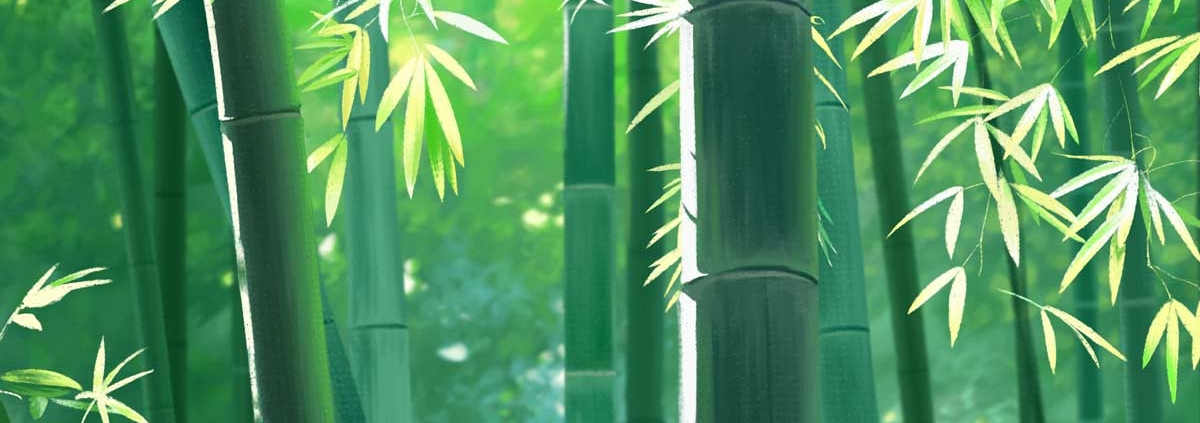4 Reasons Why Bamboo Toilet Paper Would Be Good for Our Bottom Line
There you are sitting in some department store’s public restroom, and you see two toilet paper options to choose from. One is old fashioned hardwood tree toilet paper, and the other is certified, eco-friendly bamboo toilet paper. With the little that you know about both types of toilet paper, which one would you choose? If you’d choose bamboo, then good for you. If you didn’t, or you don’t really care, consider these four reasons, next time you’re faced with such an odd predicament, on why bamboo toilet paper might be good not just for your bottom line, but for everyone’s.
1. Prevents Deforestation.
According to the United States’ Environmental Protection Agency, one hardwood tree produces about 100 pounds of toilet paper and about 83 million rolls are produced per day. Humans consume 27,000 trees daily to make toilet paper. With so many trees being cut down to make something so short lived as toilet paper, why not consider an alternative source such as bamboo, which grows back almost as quickly as it’s chopped down since it’s technically a grass not a hard wood.
“Bamboo is a relatively new fiber in this part of the world and we think it offers considerable opportunities for the future,” said Tom Berry, head of sustainability at Kimberly-Clark EMEA. “It’s one of the fastest growing plants in the world producing significantly more fiber, on less land, than trees traditionally used to make tissue paper.”
As of 2009, between 25 percent and 50 percent of the toilet paper used in the United States comes from tree farms in the U.S. and South America, with most of the rest coming from second growth forests, and only a small percentage coming from virgin forests.
2. Reduces Paper Consumption.
The average American uses 50 pounds of tissue paper per year which is 50 percent more than the average of Western countries or Japan. The higher usage in America may be explained by the fact that in many non-American countries people utilize bidets or spray hoses to clean themselves. Millions of trees are harvested in North America and in Latin American countries leaving ecological footprint concerns.
Using bamboo as an earth-friendly alternative would significantly reduce consumption of hardwood-made paper. “Bamboo is being hailed as a new super material, with uses ranging from textiles to construction,” writes the BBC in an article coinciding with its radio report Green Gold: The Bamboo Boom. “It also has the potential to absorb large amounts of carbon dioxide, the biggest greenhouse gas, and provide some of the world’s poorest people with cash. “Today you can buy a pair of bamboo socks or use it as a fully load-bearing structural beam in your house – and it is said that there are some 1,500 uses for it in between.”
3. Stronger, Cooler, Softer.
Bamboo’s natural properties make it inherently stronger than hardwoods and is as strong as soft steel. It’s also cooler and softer to the touch, which is clearly a positive benefit when it comes to toilet paper handling. According to a news report by BusinessGreen, a new environmentally toilet paper is on its way. The Andrex puppy will soon be wrapping itself up in greener toilet paper, after parent company Kimberly-Clark unveiled a recycled tissue that uses bamboo for extra softness. It’s made from 90 percent recycled fiber and 10 percent imported bamboo. It’s also cased in 100 percent recycled and recyclable packaging.
‘”Creating a softer product like Andrex Eco could open the door for greater consumer uptake and help us all play a part in moving to a more sustainable lifestyle,” said Julia Young, manager of WWF Global Forest and Trade Network, of which Kimberly-Clark is a member.
4. Biodegrades Faster.
Bamboo is 100 percent biodegradable. It’s like it melts right back into the earth, making for cleaner, safer soils. It’s easier on our landfills, better for dirt quality, and doesn’t leave as many leftover, unusable byproducts during production.
All of these reasons amount to long-term cost savings for manufacturers, distributors, retailers and agriculturists, which results in a happier, healthier bottom line for both producers and users of such an earth-friendly alternative to traditional toilet paper.
Hopefully, you’ll start seeing more bamboo in a loo near you.




